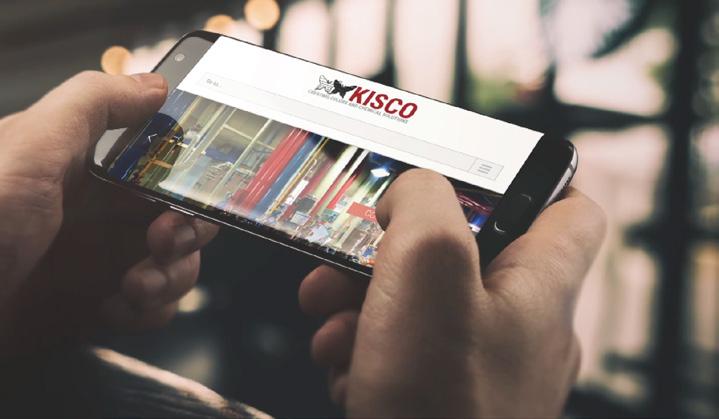
3 minute read
Flexible Phone Screen Chemicals Kick Off New Industry Partnership for South Korea and Australia
Source: Sally Wood
The next generation of flexible phone screens, and other high tech products, are one step closer to development following an international partnership agreement between South Korean manufacturer the Kyung-In Synthetic Corporation (KISCO); Australia’s national science agency, CSIRO, and Melbourne-based company, Boron Molecular.
The investment, recently announced in Seoul, South Korea, will enable the continued growth of Boron Molecular’s manufacturing capacity in Australia, and use CSIRO technologies, to open up global markets. As part of the agreement, KISCO and CSIRO will both take a minority shareholding in Boron Molecular. Zoran Manev is the Managing Director of Boron Molecular, which was originally formed around a suite of process patents on organic molecules called boronic acids, which were developed by CSIRO. “We thank CSIRO for their long-term trust in, and support for our company,” Manev said. “Now with the manufacturing capability, international reach and reputation of KISCO, we can offer CSIRO’s chemical technologies at scale to a global market.” Boron Molecular and KISCO will use a range of CSIRO technologies to enable manufacturing of high purity precision engineered polymers for flexible electronics, and many other applications in health, industry and agriculture. Dr John Tsanaktsidis, Advanced Fibres and Chemical Industries Research Director at CSIRO, said this partnership will see CSIRO continue to use its science to strengthen local businesses and create future industries and jobs. “The new agreement will bolster Australia’s sovereign manufacturing capability, create local jobs and open the door for Boron Molecular to further commercialise CSIRO’s technology in new global markets via KISCO’s international links and production capacity,” Dr Tsanaktsidis said. “Our partnership with KISCO and Boron Molecular builds on over 40 years of CSIRO’s technological leadership in chemical processing and polymers, which has led to Australia’s plastic banknote technology, extended wear contact lenses, biodegradable plastics for biomedical applications, and many other products,” he continued. Boron Molecular is commercialising several CSIRO processes and technologies, including flow chemistry, reversible addition-fragmentation chain transfer (RAFT), metal organic frameworks and MS3 art conservation resin. While there is scope for further innovation, KISCO CEO and President, Dr Sung Yong Cho, said they will initially focus on flexible electronics. “We’re looking forward to making the first products, from this new partnership, available to Korean electronics companies this year.” “CSIRO is a powerhouse of chemistry and materials research and through our partnership with Boron Molecular we can scale up and deliver this research to new markets,” Dr Cho said. Australian Ambassador to the Republic of Korea, His Excellency James Choi, addressed delegates at the launch of the partnership, which was also available online due to ongoing COVID-19 travel restrictions. For almost 50 years the KISCO group of companies has been creating colours and chemical solutions including dyes, inks, fine chemicals and other materials, for
Zoran Manev, Managing Director of Boron Molecular, at CSIRO’s FloWorks Centre for Industrial Flow Chemistry. ©Nick Pitsas
textiles, food, agriculture and electronics. The company has large-scale production facilities in 11 plants across South Korea, China and Turkey. The collaborative nature of CSIRO’s research turns science into solutions for food security and quality; clean energy and resources; health and wellbeing; resilient and valuable environments; innovative industries; and a secure Australia and region. Boron Molecular is a leading specialist chemical manufacturer, that signed a master license agreement with CSIRO in 2015 for the commercial exploitation of a range of polymer and advanced material technologies, including RAFT. This investment led to increased jobs, exports, and manufacturing of diversified products. Boron Molecular has manufacturing facilities in Melbourne and Raleigh, North Carolina, and partners across four continents.

South Korean manufacturer Kyung-In Synthetic Corporation (KISCO) has partnered with CSIRO and Melbourne-based company Boron Molecular.










